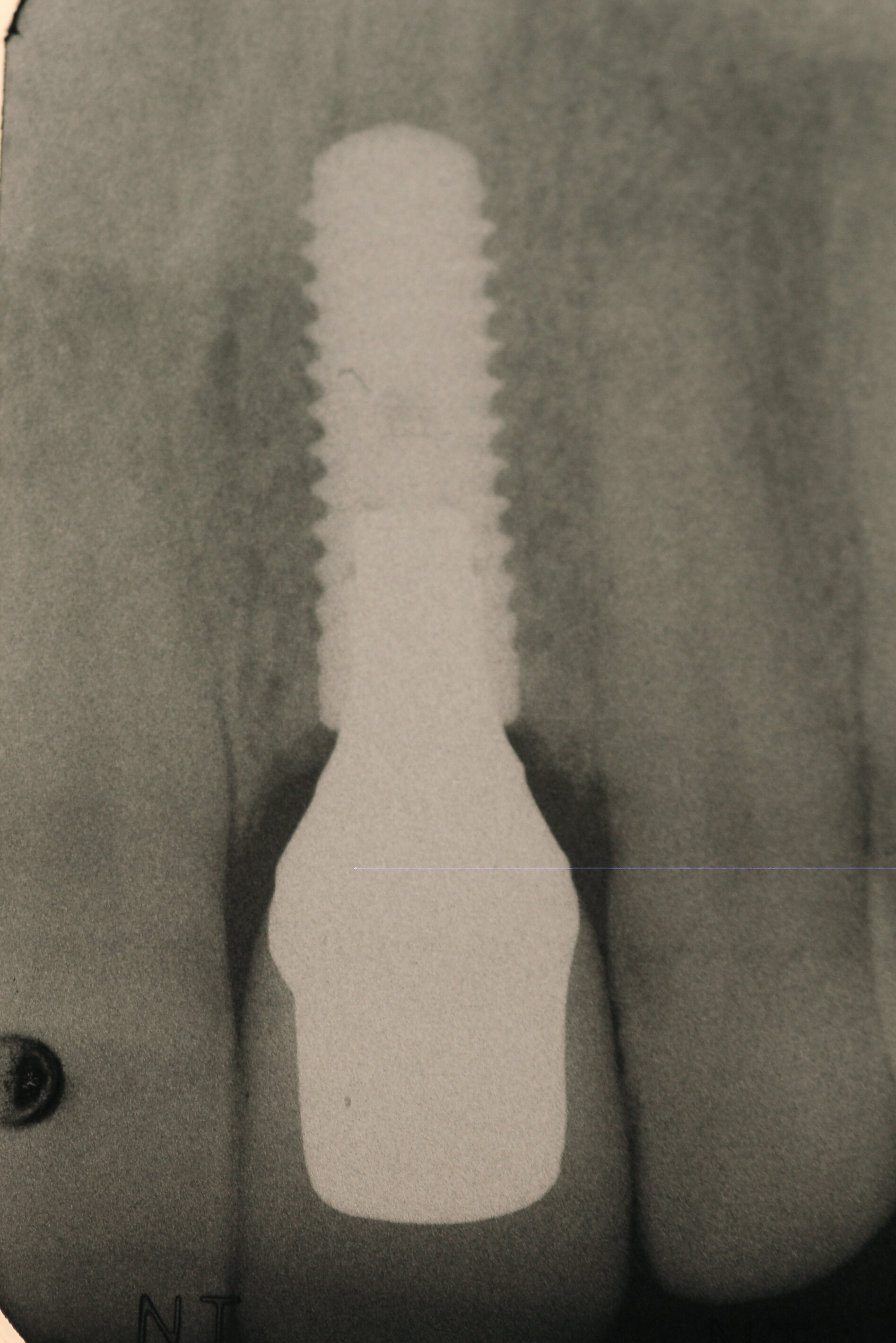
With specialisation comes expertise
Dental Implants
What are dental implants?
Dental implants are metal anchors, usually made of titanium, that are surgically placed in the jawbone to hold replacement teeth in place.
Dental implants may be used to permanently fix crowns and bridges in position or to help secure removable dentures in position.
What are the benefits of dental implant treatment?
Because dental implants function remarkably like natural teeth, most people who undergo implant treatment experience a renewed sense of self-confidence once that they realise they can chew, talk, laugh and smile again with confidence.
What does treatment with dental implants involve?
Having an implant involves a small surgical operation usually under local anaesthetic. If you can cope with a filling or an extraction you can cope with an implant. During surgery each implant is placed within the jawbone to serve as the anchor that will eventually support the replacement teeth.
Generally the implants are left buried under the gum for a period of three to six months to allow the bone to grow around them and secure them within the bone. While the bone is healing you can be fitted with a temporary denture or bridge to help you function until the implant is ready for restoration. When ready a small incision is made in the gum under local anaesthetic and a post which passes through the gum is attached to the implant. After the gum has healed the replacement teeth or dentures can be attached.
What are the complications?
Implant placement requires a surgical procedure and afterwards it is usual to experience some discomfort, swelling and bruising. As a result, it may be difficult to eat and brush normally for a number of days.
Negative effects such as bleeding, infection, injury to adjacent nerves or sinus cavity are rare.
There is a risk of gum recession around implant restorations. For single tooth implants this may result in a long tooth. This risk is increased for those patients with a thin gum tissue or those who have lost a lot of bone following loss of their natural tooth.
The risk of implant failure is generally low. However, like teeth, the restorations retained or supported by the implants are subject to wear and tear and depending on the degree of wear may require replacement at some stage in the future.
Will I need a bone graft?
Dental implants require adequate bone volume for placement. Where bone volume is insufficient for implant placement, in most cases, new bone can be regenerated so that implants can be placed.
Where bone volume defects are minimal, grafting may be undertaken using a bone substitute. Bone granules provide a scaffold for new bone and over time they are broken down and replaced by your own bone. A collagen membrane is placed over the bone substitute to protect it during the early stages of healing. After a number of weeks this completely resorbs. A high percentage of implant placements require simultaneous grafting using a bone substitute to repair bone defects and ensure a predictable aesthetic result.
If bone volume defects are more severe a bone graft may be required. A surgical procedure is required to transfer bone from either the chin or the jaw to the proposed implant site. The implant is placed during a second surgical procedure six months later.
How long do dental implants last?
Dental implant treatment is now recognised as one of the longest lasting and predictable forms of tooth replacement. Research shows that over 95% of dental implants should last for many years with the right care. Complications are more likely in patients who smoke, patients who grind their teeth, patients who have had previous gum disease or patients who have poor oral hygiene.
What future maintenance is required?
Aftercare is important if you are going to have a long lasting and successful implant.
Cleaning around the restorations attached to the implant is no more difficult than cleaning around your natural teeth, however, there may be areas that are difficult to reach and require more care.
If you lost your teeth through gum disease you are at increased risk of getting infections in the gum around the implants. It is essential that you keep them clean and don’t smoke to avoid such problems.







